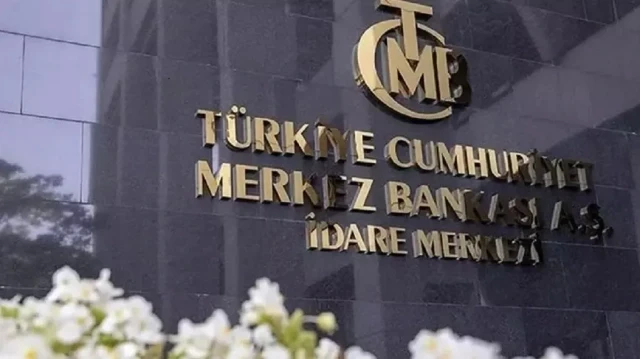
Benchmark index BIST 100 climbs on policy easing, with experts seeing gains ahead if domestic policies stay stable
Türkiye’s benchmark BIST 100 index is on a record-breaking course, driven by the Turkish Central Bank’s rate cut in July and declining global risks, experts say.
Türkiye’s disinflation process has seen some progress, while optimism that the war in Ukraine may end and easing tensions in the Middle East have supported the rise in the BIST 100.
The Turkish economic administration’s monetary policies have been effective in slowing inflation, with the bank’s rate cut cycle boosting risk appetite in domestic markets.
Turkish Central Bank reserves rose by $2.1 billion this week, compared to last week, to $176.5 billion, an all-time high and a record pace for two consecutive weeks.
The BIST 100 started the year at 9,858 points but dropped to around 8,972 points amid rising geopolitical risks and tariff developments.
Easing global risks and active economic policies in Türkiye later pushed the index to a new record of 11,334.48 points — the highest since July 2024.
At the same time, the BIST 100 set a new closing record at 11,313.9 points — again the highest figure since July 2024.
Hande Sekerci, chief economist at Türkiye-based financial services IS Portfoy, told Anadolu that the rapid news reports on monetary policy and US tariffs in recent days failed to overshadow the positive investment environment in Türkiye.
Sekerci said peace talks between Ukraine and Russia, led by the US, positively influenced the Turkish economy.
“Tourism, textile, electricity, metals, transportation, and indexes performed better than the BIST 100 last month, but the banking index lagged behind,” she said.
“Transportation, financial, technology, and tourism indexes outperformed the benchmark index since the beginning of the year.”
Sekerci noted that annual and adjusted real growth in the country remained relatively strong, while still anticipating a seasonal slowdown in Turkish economic activity. The strong growth was due to car sales and housing in the second quarter.
She mentioned that credit card spending showed the real consumption in Türkiye last month and this month, which remained in line with the trend of the first half of last year.
Sekerci highlighted that the Turkish economy is expected to grow slightly below 3% this year. She said economic activity remained resilient despite unexpected monetary tightening in the first half.
“We think the Turkish Central Bank will continue its monetary easing that it started in July,” she said. “The policy rate is expected to fall to 40% in September, 37.5% in October, and 35% in December, while the US dollar/Turkish lira exchange rate is expected to end the year slightly above 44.”
“The year 2026 will be a kind of a test for declining inflation and continued rate cuts,” she added, noting that the inflation momentum will remain positive relative to the basket currency appreciation and short-term returns on Turkish lira assets, so long as no unforeseen domestic economic volatility emerges.
“Turkish Central Bank’s policy rate could decline to 25% by the end of 2026,” she said.
Seda Yalcinkaya Ozer, research manager at Turkish financial services firm Integral Yatirim, told Anadolu that the BIST 100 rose and tested its resistance level of 11,250 while reaching its highest after a rapid upward trend.
Ozer said the perception of continued rate cuts is keeping the Turkish market strong, with the inflation rate expected to move towards disinflation if no new risks emerge and further rate cuts are applied.
She noted that third-quarter financial statement expectations are key as sectoral data will shape forecasts.
Burak Pirlanta, research specialist at Gedik Investment, told Anadolu that several key factors contributed to the rise of the Turkish stock market, but the main trigger was renewed risk appetite after the rate cuts.
Pirlanta said the downward trend in interest rates led individual and institutional investors to turn to the stock market in Türkiye instead of alternative investment instruments.
“Company profitability still remains not very positive but higher than expected, rendering stocks more attractive, while the high risk appetite around the world contributed to more interest rates in emerging markets,” he said. “In Türkiye’s case, low risk premiums, predictable economic policies, and a stable investment environment will be decisive in maintaining a positive momentum in the stock market.”
Pirlanta added that the last quarter’s economic recovery, combined with rate cuts and supportive company earnings, could push the BIST 100 even further. He said the upward momentum in the Turkish stock market is expected to continue in the short term, while the medium-term could also see the trend persist if domestic policies remain stable and global risks limited.







